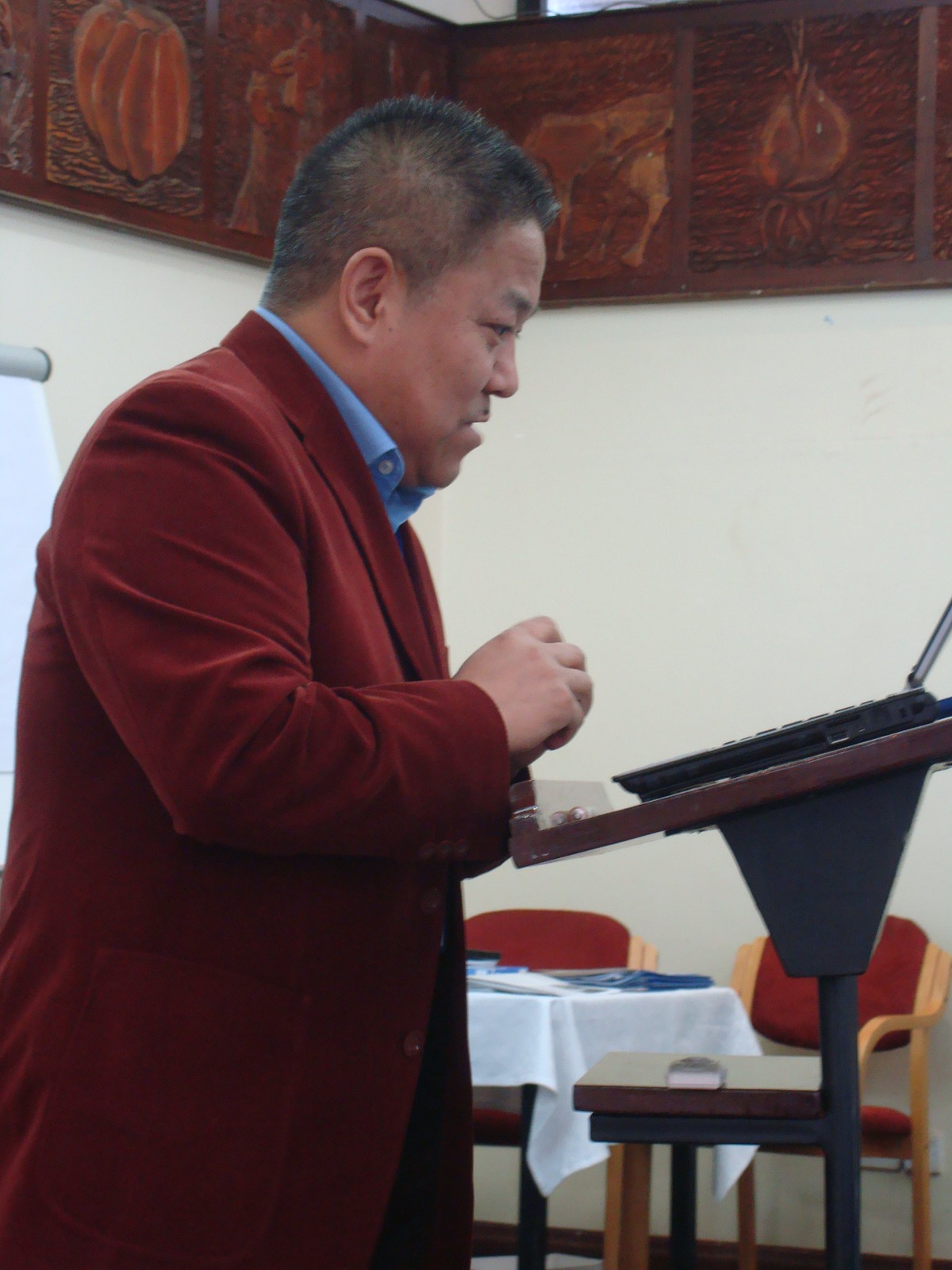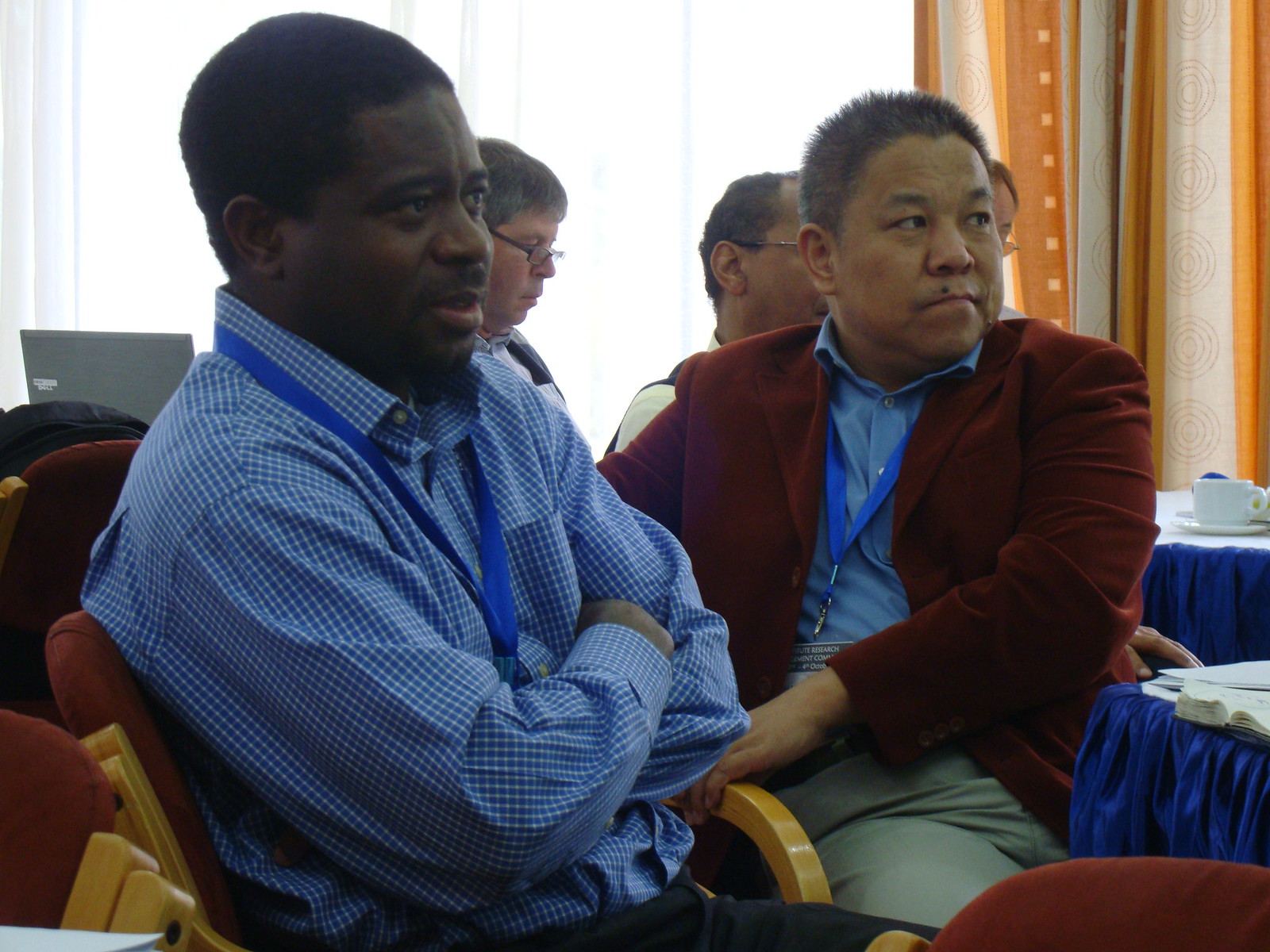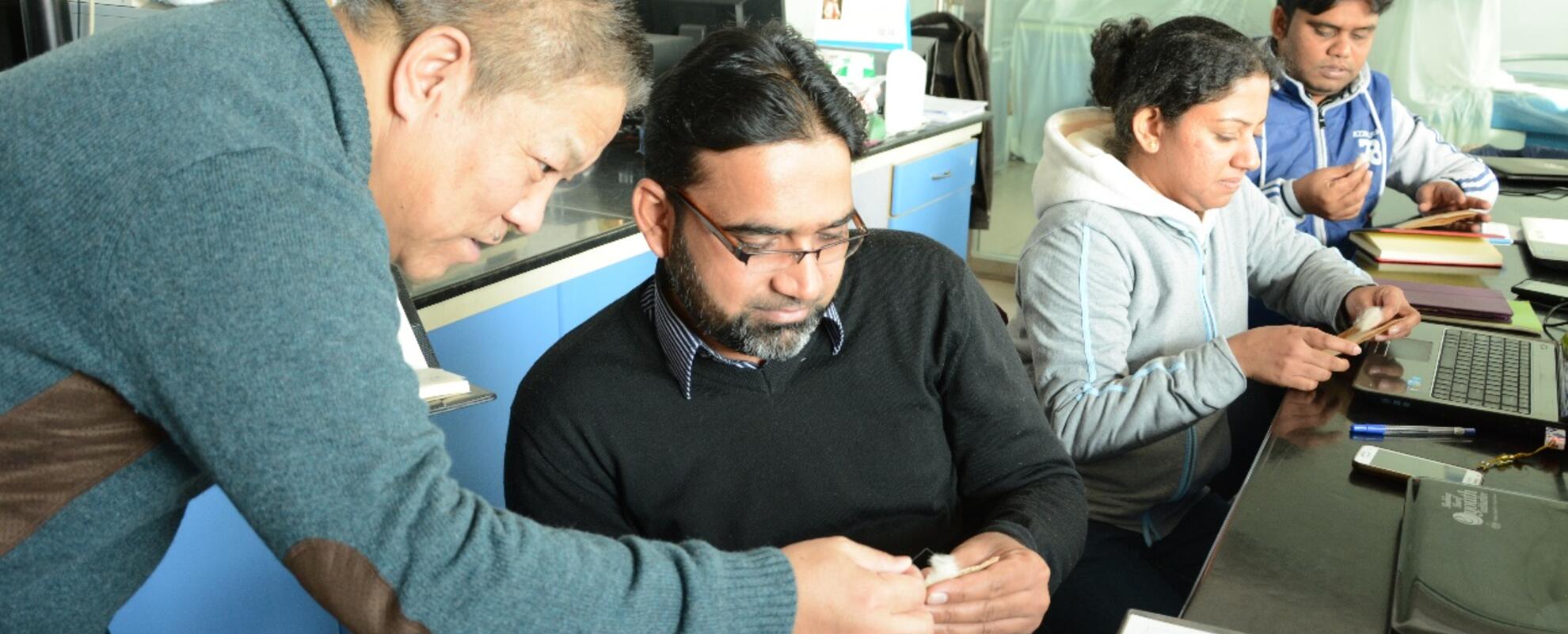
Leading two continents to genetic research collaboration
Han Jianlin retired from ILRI on the 31 August 2023 after serving the organization for 24 years, but he won’t be leaving the research world just yet. After working as a research fellow (1999-2000), postdoc, scientist, and senior scientist (since April 2001) at ILRI, he is in active 'retirement', as ILRI’s Chief Representative in Beijing, China (consultant). He is also leading the Program on the Functional Genomics and Innovation of Smart Small Ruminant Breeds at the Yazhouwan National Laboratory in Sanya, Hainan, China, where he is building a team of up to 15 scientists and 20 postdocs. These roles will enable him to continue maintaining and strengthening academic ties and friendships between his research partners and ILRI.
We had the opportunity to hear more about Han’s achievements at ILRI and his plans during an interview shortly after his ‘retirement’.

How did you pursue a career in livestock genetics research?
I joined ILRI-Nairobi in 2001 and was re-allocated to Beijing in 2006 to do research on livestock genetics and genomics. I first had a chance to go to Nairobi in 1999 and after learning about ILRI’s work, and said yes to help develop it more. My work first started as a collaboration and then led to the creation of a position as a research scientist to work at ILRI.
Why did you join ILRI, and what were your early days like?
Before I came to ILRI-Nairobi, I worked as a visiting scientist for another university in Germany whose lab was very advanced. But Nairobi had even better facilities than the lab in Germany at that time and I liked how ILRI operated. I wanted to help expand ILRI’s genetic research from Africa to Asia and be a lead for national partners.
It was exciting to figure out how to work in Asia - we had to learn to scale up what worked in African countries for bigger countries such as India and China.
What is your greatest impact during your tenure at ILRI?
While research achievements carry the boast of many scientists, the biggest impact I believe I had at ILRI was building networks of people together between Africa and Asia, which has increased partnership between the two continents. I did this through training embedded into collaborative projects involving research fellows from Africa and Asia, in our research labs in Nairobi and Beijing, from 2005 to 2020. But in addition to this, I have also led research projects to increase the efficiency of DNA sequencing and have published 20-30 high impact articles around everything from the origin and history of livestock species, and the dispersion of genetic diversity in chickens, ducks, pigs, cattle, buffaloes, yak, sheep, goats, horses, camels, and more.
How will your links to several universities in China shape the future of livestock research?
Fostering academic ties and experiences between researchers in China and the African continent will increase knowledge exchange and potential collaborations between diverse groups to learn from each other and increase our impact together. I have a strong influence on groups of scientists in different universities and research organizations in China and have been pushing for more international collaboration on genetics research of livestock.
You also mention the need for young research fellows from diverse countries. How do you plan to support their growth and development?
I want to open new training to fellows outside of China to be trained on genetics and genomics research to develop influential initiatives on livestock improvement over the next few years.

What do you see for yourself in this new chapter of your career?
I want to take people to visit our new facilities and create a work plan to collaborate with ILRI colleagues through the ILRI network we have created. I want to continue working with people in ILRI’s genetic program such as Steve Kemp, Olivier Hanotte, Okeyo Mwai, Tadelle Dessie, Julie Ojango, and many more. We need to do this to increase the international image of conducting research on livestock genetics and to increase the interests of young fellows in this field so that more people seek doing genetic research of livestock.





